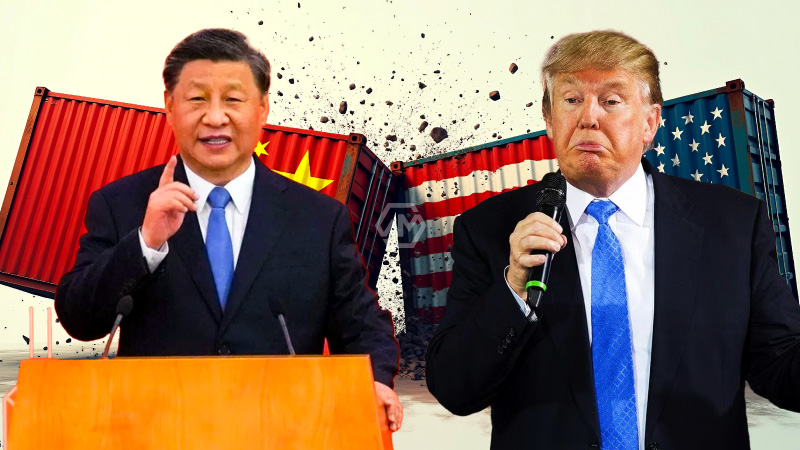- China hikes tariffs on U.S. goods from 84% to 125% in retaliation.
- Trump had earlier raised U.S. tariffs on Chinese imports to 145%.
- Beijing accuses Washington of “unilateral bullying” and economic coercion.
In a dramatic escalation of the U.S.-China trade war, Beijing announced it will raise tariffs on U.S. imports to 125%. This is in response to President Donald Trump’s earlier move to push tariffs on Chinese goods up to 145%.
Beyond the economic implications, this move also signals deepening geopolitical friction. President Xi Jinping has urged the European Union to partner with China in resisting what he called “unilateral bullying.” This implies a broader effort to reshape global alliances.
Tit-for-Tat Tariffs: China Counters U.S. With Sharp 125% Levy on Imports
China’s sharp tariff hike on American goods comes just hours after Trump’s aggressive escalation in duties on Chinese imports. The tariff war, which began with targeted goods, has now ballooned into a sweeping conflict. It affects a broad range of industries and commodities. The 125% tariff will make it nearly impossible for many U.S. goods to compete in the Chinese market.
Chinese officials made it clear that they will not entertain further negotiations under pressure. The statement from Beijing’s Tariff Commission suggested a hardened stance. They indicated that U.S. measures were irrational and globally destabilizing. By ignoring future tariff increases, China is effectively signaling that economic ties with the U.S. are no longer viable under the current framework.
This conflict now threatens to disrupt the balance of global supply chains. From electronics to agriculture, industries heavily reliant on bilateral trade are scrambling to adjust. The U.S. farming sector, in particular, could suffer as its key exports like soybeans and pork face shrinking demand in China.
At the diplomatic level, China’s call for EU cooperation adds a strategic dimension to the standoff. As Washington isolates itself with steep tariffs, Beijing appears to be positioning itself as a leader of multilateralism. This outreach may find support among nations also affected by U.S. protectionist policies. It potentially reshapes trade alliances in the years ahead.
As both sides dig in, the U.S.-China trade war appears to be entering a new, more volatile phase—one that could leave lasting scars on the global economy and political landscape.
“Trade wars are good, and easy to win.” – Donald Trump



